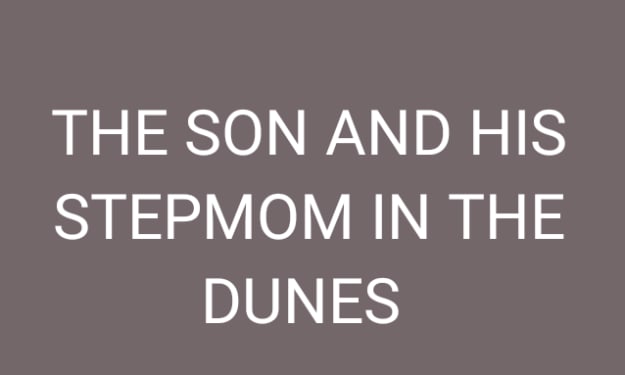
Introduction
Poetry is a form of literary art in which language is used for its aesthetic and evocative qualities in addition to, or in lieu of, its apparent meaning. Poetry is a great tool where one can expand on one’s own ideas. It enables the writer to express their thoughts in a unique and attractive way. When looking at poetry, there are many forms which a writer can use to model his poetry around. These forms vary from one form to another in many different ways. Each form has its own set of rules from a rambling sonnet to a short and precise haiku. They each present a different outlook on how one chooses to express his ideas.
Definitions
Some of what is about to be discussed includes quite a bit of technical terms. To help the beginner navigate this article, here are some quick definitions.
The generally accepted names for some of the most commonly used kinds of feet include:
- iamb – one unstressed syllable followed by a stressed syllable
- trochee – one stressed syllable followed by an unstressed syllable
- dactyl – one stressed syllable followed by two unstressed syllables
- anapest – two unstressed syllables followed by one stressed syllable
- spondee – two stressed syllables together
The number of metrical feet in a line are described in Greek terminology as follows:
- dimeter – two feet
- trimeter – three feet
- tetrameter – four feet
- pentameter – five feet
- hexameter – six feet
- heptameter – seven feet
- octameter – eight feet
Terminology:
Assonance- the use of the same vowel sound with different consonants or the same consonant with different vowels in successive words or stressed syllables, as in a line of verse. i.e. mystery- mastery
Alliteration- two or more words in succession beginning with the same sound. i.e. Precariously perched pigeon.
Consonance- the use of the repetition of consonants or consonant patterns as a rhyming device. i.e. came, home, time.
Onomatopoeia- The formation of a word which is also a sound, such as BOOM!
Rhyme- Identical sound in some part of a word, i.e. cat-hat.
Symbolism- The practice of representing things through symbols. The raven in Poe’s The Raven is a symbol.
Elements:
Another thing to consider is the elements involved with writing poetry. For instance, one should consider the rhythm and meter of the poem they are writing. As well as whether you wish for there to be a rhyming scheme involved. Many different terms are used in the English language which can help a person when they are creating a new work of poetry. If you want to improve the text when you write poetry then you should familiarize yourself with some of the terms. At the very least, you will increase your knowledge and vocabulary of literature. Some of the more often seen and recognized elements are as follows:
For Beginners:
When writing poetry, one must first realize it is an art form. Not every poem is going to be like the one before it. The great thing about writing poetry is that it is completely yours- a poet’s success in not deposited in the bank account. It is in the ability to create something that has the ability to speak to the reader. The poet may choose the subject and frame the poem to the content. Poetry is a way of free expression. It allows the author to put his ideas in a form which comes with a sense of order and rhythm. People will remember an image long after they’ve forgotten why it was there. In it, there is a sense of refinement to what may before have just been an idea. It leaves one with a sense of beauty and reason.
Decide on the subject you wish to write about. Start with a familiar subject and then go on to some obscure subjects to which you have previously never given much thought.
• Think about something special or unique to the subject
• List some descriptive words which may provide some clear information to the reader
• Try to create pictures in the reader`s mind - your aim is to fire the imagination
• Express your feelings
• Convey your feelings by the tone of your poetry
• Bind the words and ideas together. Connect them by the use of rhyme which will provide your poetry with the element of repetition of identical or related sounds
• Get some rhythm into your poetry - the number of lines and your choice of poetry form will help you with this.
• Visual patterns - does your written poetry create a good pattern on the page?
• Patterns of Sound - using alliteration, assonance and onomatopoeia can create sound effects.
• Read your poetry to a friend
• If you receive some constructive criticism don`t be afraid to change your poetry accordingly
• Enjoy yourself - Writing poetry should be fun!
If you are sitting at your desk staring at a blank sheet of paper trying to force poetry to be written, stop. Writing poetry as a hobby should not be a mindless task which you do just to say that you have actually written a poem. It should be a process of love which stems from some sort of creativity. If you are having trouble being inspired, get up and experience life. The best poetry is written about something one has true feelings about whether good or bad. Write about what you are feeling at that moment. It does not have to be something which others have written before. Be different. Try writing about something abstract such as hope or the feeling of failure. Describe the things around you in a new and inventive way.
Writing poetry is a wonderful way to share views and opinions with others, but an uninformed poet may not be able to reach his or her audience without some guidance.
It can take a lifetime to create something worthwhile, especially without guidance. There is no law governing who the poet can be, perhaps the mechanic down the street moonlights as a poet or maybe the clerk at the grocery store is really an aspiring poet. The point is that with the proper guidance, anyone can be a successful poet.
It may be frustrating, but sitting down with a pen and paper or in front of a computer does not mean that vibrant verse will automatically pour onto the blank page. That is not how inspiration works. So, be prepared by always carrying a notebook and paper or laptop.
This way if inspiration strikes while stuck in a traffic jam or during a night out on the town, the potential poem doesn`t get forgotten. Inspiration likes to strike during inconvenient times and when the writer is always prepared, the ideas always get recorded. Not every poem will be a winner, but that doesn`t mean it needs to go into the recycle bin. Be sure to keep copies of everything. What seems terrible now may not seem terrible tomorrow. Bad ideas may also wind up priming the pump and helping the poet churn out something truly amazing.
Not everyone wants to read tired metaphors about love and longing. Instead of “waxing poetic” about your surroundings, make them personal. The story of heartbreak has been told for centuries, but your story hasn’t been told. Make sure to be inventive when writing- keep the reader’s interest- topics that have been written about death still have life in them- it is the poet’s job to find it,
Contrary to what anyone’s third grade teacher said, poetry doesn’t need to rhyme! Actually, only those who have practiced rhyme and have experience in poetry writing, should try to rhyme. If creating a rhyming poem is something that just has to be done, then do some research about rhyming and rhyming words? Do not force it just to make something fit. If it will not work, then try to think of a new way to phrase what it is to be said.
As to using those adjectives and adverbs to create the perfect description- there can be too much of a good thing. The reader wants to be there in the poem with the writer, but they don’t want to get lost in the color of the trees when it is the person walking along the path that they should be paying attention to.
Try to remember that this, like everything, requires practice. E.E. Cummings didn’t succeed in his first try- don’t expect to be successful right out of the gate. Hang in there! Practice your craft and master it. If a mental block comes along, wait it out. Sometimes, it can be weeks before it will lift and the creative juices start to flow again. While this is corny, it is true- if you believe you are going to fail, you are right. Practice to succeed.
Do not try to conform your poetry to the likes of what has been written before you. It has been written previously. It has already been done and been completed. Do things your own way. Poetry is about how you feel, not how others think you should feel. It is a chance to allow you to think about things in a way different from the ordinary. You are allowing yourself the chance to form new opinions and thoughts by constructing your view in a variation from what has always been done. It is a chance to show how you truly feel on a subject.
There are benefits to writing poetry other than just a form of creative expression. It gives the poets a chance to put on paper how they view what is happening in their world. This may allow them to see things in a way they never did previously. The mere conveyance of one`s thoughts to paper often brings new epiphanies and even revision to already formed views. It is also a chance to clarify one’s mind. To take all that has happened in a day and moves it to another source. Some people need this at the end of the day to process what has happened previously, giving them a better outlook on life.
About the Creator
Iftikhar Ahmed
Freelance writer.
Enjoyed the story? Support the Creator.
Subscribe for free to receive all their stories in your feed. You could also pledge your support or give them a one-off tip, letting them know you appreciate their work.






Comments
There are no comments for this story
Be the first to respond and start the conversation.